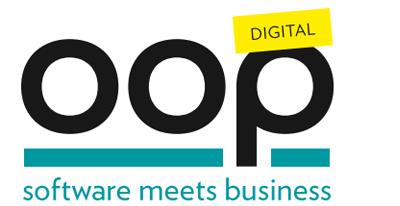- Deutsch
- Contact
- Newsletter

CONFERENCE PROGRAM OF 2021
Please note:
On this site, there is only displayed the English speaking sessions of the OOP 2021 Digital. You can find all conference sessions, including the German speaking ones, here.
Thema: Artificial Intelligence
- Dienstag
09.02. - Mittwoch
10.02. - Donnerstag
11.02.
80% of machine learning is said to be data wrangling. Is all this wasted effort? Hardly - often the journey really is its own reward.
In this talk, we'll briefly describe a machine learning project that predicts the outcome of test cases in a large-scale software development cycle. We'll then show what we gained from collecting the necessary data and how these insights can have lasting impact on the day-to-day work of developers, testers and architects. This includes a quick answer to the…
AI is maybe the most powerful tool our generation has available. Andrew NG called it "the new electricity". But what does it take to build AI enabled products? What are the key elements to achieve production grade AI? How does it impact your development process? How can quality be achieved? These are the questions this talk tries to answer. You will get an idea why the industry is talking about nothing less than a paradigm shift when it comes to developing AI based products.
Target Audience:…
Whether evolution or revolution, or yet old wine in new skins, for more than 10 years, DevOps is changing how we develop and deliver software. This session looks back on the roots of DevOps, its movement until today, and current as well as possible future directions. This interactive session aims to offer a set of fruitful starting points for reflection and discussions.
Target Audience: Anyone interested in developing and delivering software
Prerequisites: Knowledge in DevOps and agile software…
Autonomous and automated systems are increasingly being used in IT such as finance, but also transport, medical surgery and industry automation. Yet, the distrust in their reliability is growing. This presentation introduces the validation of autonomous systems. We evaluate in practical situations such as automatic driving and autonomous robots different validation methods. The conclusion: Classic methods are relevant for coverage in defined situations but must be supplemented with cognitive…
The problem at hand is partly the application of software engineering best practices to AI, but more so the evolution of software engineering to attend to software-intensive systems that contain AI components. In this lecture, I'll examine both dimensions: emerging AI architectures, neuro-symbolic systems, designing/testing/deploying/refactoring/maintaining systems with AI components; the future of software engineering.
Target Audience: Software engineers
Prerequisites: Curiosity and a desire to…
